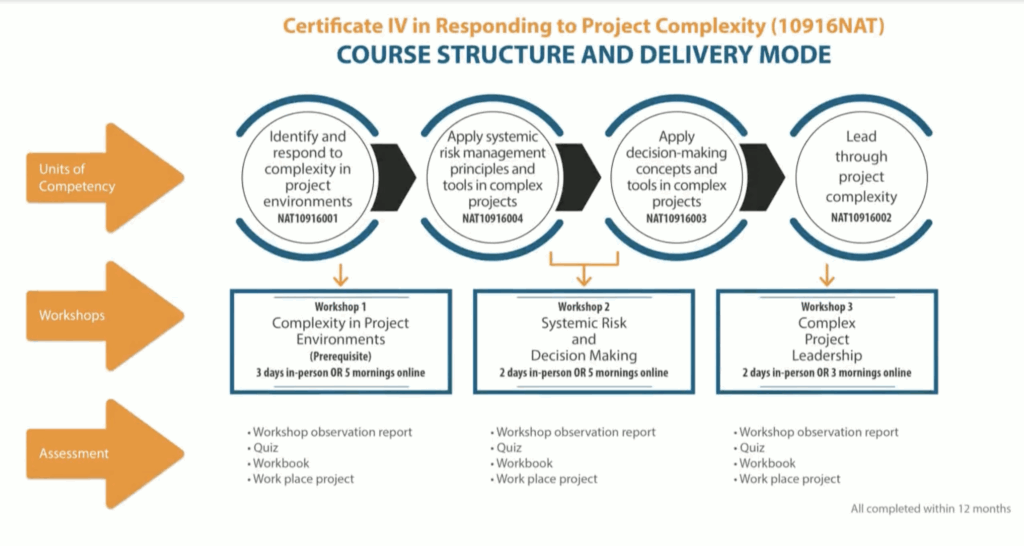ICCPM Certificate IV: The value of upskilling for project complexity

Parbery Principal Karen Anderson completed the International Centre for Complex Project Management (ICCPM) Certificate IV in Responding to Project Complexity. In this blog, she shares key insights from the course and reflects on the value it brings to her work as a project manager.
Do you wake up in the morning excited to come to work, or are you dreading the complexities of the projects and associated chaos? After successfully delivering a pilot project, the ensuing expanded program came with these challenges.
Fortunately, I attended the International Centre for Complex Project Management (ICCPM) Certificate IV in Responding to Project Complexity. It was structured in three distinct subject areas and tools associated with them.

Module 1 – Understanding complexity in projects
What is complexity? Understanding the nature of the complexity helped to understand and subsequently tackle the challenges in manageable bite-sized chunks. You’ve probably already heard of some of the models, which included:
- Systems thinking
- Soft systems methodology
- Strategies for different types of complexity
- Simple rules – providing clear guidelines but allowing autonomy at the same time. For example, simple rules for birds flying in formation could be ‘don’t crash.’
- Rich pictures – a picture tells a thousand words which was reinforced by the team’s ability to map the landscape, objectives, outcomes, barriers and other considerations delivering a complex project. Being an artistic creative genius is unnecessary. The use of clipart and royalty-free images obtained from the internet was sufficient for the team to map on a page the complexities of implementing nuclear submarines for example.
- Johari window
- Cynefin Framework
Module 2 – Systemic risk and decision-making
I frequently challenged the traditional risk and issue management approach throughout this module and really valued the ability to create a story, identify and show risk and issues in the broader context and show links.
Module 3 – Complex Project Leadership Styles
The Team Management Profile (TMP) provided insights into leadership styles and associated behaviours that helped me to understand my own work preferences and articulate the conflicts in my current role, so they could be addressed and make work more enjoyable.
I learnt that an Explorer-Promoter thrives in environments with innovation and new opportunities being able to see the big picture, have significant influence to persuade others to pursue it, grasp concepts and details quickly and thrive in an environment with many balls to juggle. This often makes it difficult for people to keep pace. I identified with this role, especially as I can react quickly and adapt spontaneously, but generally I think through the challenges in detail before presenting decisions.
Having an uncommon practical streak for Explorer-Promoters and being a particularly good teacher sits in the Assessor-Developer space of the model, which proved invaluable when implementing organisational change.
The ICCPM Certificate IV in in Responding to Project Complexity originally commenced as an initiative between the ICCPM and Department of Defence and has since been expanded into non-Defence areas. It offers great insights and is worth the effort to complete. It is especially important for those working in the Federal Government space as the Australian Public Service Commission (APSC) is proposing to include the Cert IV in Responding to Project Complexity as a requirement for contractors and the like working in project management.


